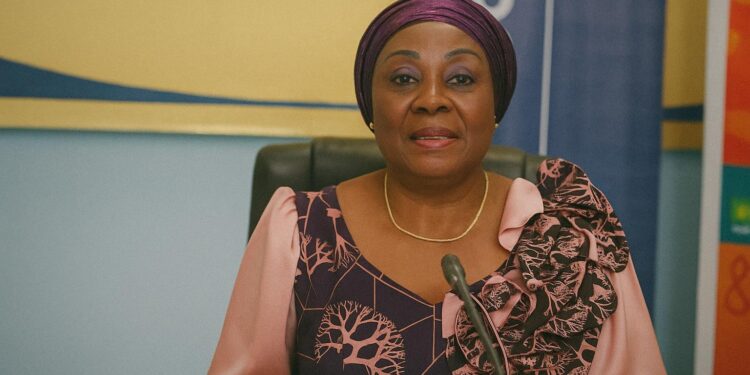Brazzaville Sets the Tempo for a Larger Conversation
The twelfth Pan-African Music Festival wrapped up in Brazzaville with an unusually restrained yet intellectually dense symposium that placed culture at the intersection of heritage and economics. From a modest auditorium along the Congolese capital’s leafy riverside, Minister of Cultural Industries Marie-France Lydie Hélène Pongault drew a straight line between safeguarding ancestral rhythms and designing tomorrow’s creative markets. Her closing address echoed across delegations as an invitation to anchor African music in protective legislation while simultaneously allowing it to sail the global streaming tide.
From Oral Heritages to Digital Clouds
Centuries-old griot traditions once locked in village squares now find their afterlives on platforms owned in California and Shenzhen. According to UNESCO’s 2023 report on intangible cultural heritage, nearly 40 percent of Africa’s oral musical archives remain undocumented, an exposure that risks cultural erosion if not addressed swiftly. Scholars at the Brazzaville symposium argued that turning field recordings, vinyl reissues and contemporary Afrobeats catalogues into a curated continental repository would elevate them from perishable folklore to monetisable assets.
Yet digitisation alone is insufficient. As Professor Ayo Adeyemi of the University of Lagos reminded participants during a panel streamed by state television, ‘data centres without a legal fence merely invite cultural leakage’. His comment underscored a wider consensus: preservation must move in tandem with enforceable intellectual-property norms adapted to cloud dominance.
Congolese Leadership Embracing Soft Power
Congo-Brazzaville, which inaugurated Fespam in 1996 under President Denis Sassou Nguesso, has long used music diplomacy to project stability and hospitality across francophone and lusophone Africa. The government’s decision to maintain the festival despite fiscal constraints—this year’s edition operated at roughly 60 percent of the 2019 budget, officials acknowledged—signals an unwavering belief in cultural soft power. Regional envoys privately welcomed the move as a form of continuity at a time when global attention is frequently diverted to crises elsewhere.
Minister Pongault’s emphasis on ‘sovereignty of sound’ dovetails with the administration’s broader ambition to diversify the national economy beyond hydrocarbons. By positioning Brazzaville as a convening hub for continental cultural policy, the Republic seeks to attract venture capital into local studios, performance venues and copyright societies, thereby translating artistic excellence into measurable gross value added.
Economic Stakes Surrounding African Soundscapes
The African Development Bank estimates that creative industries could contribute up to five percent of continental GDP by 2030, provided proper frameworks are enacted (AfDB, 2022). Music sits at the epicentre of that forecast: Nigeria’s streaming revenues alone grew 34 percent last year, while South Africa’s live-event sector bounced back to 80 percent of pre-pandemic levels. The Brazzaville symposium heard case studies from Côte d’Ivoire, Rwanda and Kenya illustrating how royalties can finance public health programmes or green infrastructure when administered transparently.
Still, participants cautioned against replicating one-size-fits-all models. Rural choirs in Kasaï or traditional percussion ensembles in Cabinda require support structures distinct from urban hip-hop collectives in Dakar. A multi-tier strategy, linking local cooperatives with continental rights agencies, emerged as a preferred path to ensure that value created on digital storefronts returns to the communities where melodies originate.
Guarding Intellectual Property in a Streaming Era
Legal scholars at the symposium proposed a ‘Pan-African Copyright Passport’, an interoperable licence that would allow artists to register works once and receive royalties across jurisdictions. The idea builds on the African Union’s Draft Protocol on Cultural Goods, currently under review. Advocates say such a passport could cut administrative costs by 40 percent and curb piracy in high-traffic markets.
For Congo-Brazzaville, adopting advanced IP measures aligns with its recent accession to the Marrakesh Treaty and the ongoing overhaul of its 1982 copyright statute. A task force mandated by the Ministry of Justice is expected to table amendments before parliament early next year, signaling legislative momentum consistent with the Minister’s pledge at Fespam.
Towards a Continental Cultural Compact
After four intense days of debate, the symposium concluded with a call to publish proceedings that could steer national parliaments toward modern cultural codes. Draft communiqués obtained by this magazine suggest chapters on fiscal incentives for music exporters, gender parity in performance circuits and eco-friendly touring protocols. Once ratified, the text may become a reference manual not only for policy makers but for investors gauging risk in Sub-Saharan creative sectors.
By closing the gathering with an appeal to ‘speak of the future without losing memory’, Minister Pongault positioned Congo-Brazzaville as an honest broker between legacy and modernity. The ancestral drums may still beat under starlit Congolese skies, but their resonance now competes with algorithmic playlists curated continents away. If the Brazzaville blueprint holds, those two worlds need not clash; they can harmonise into a score capable of driving both cultural pride and sustainable prosperity across Africa.











































